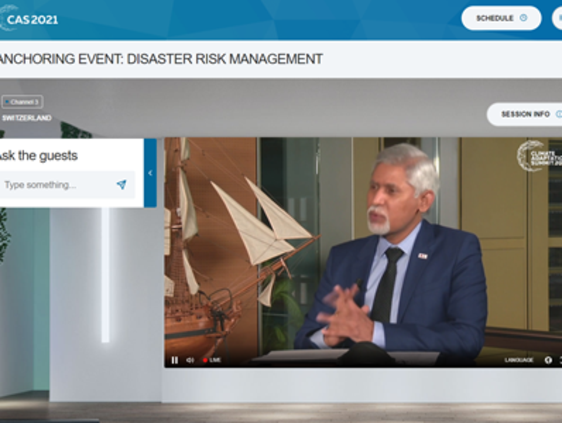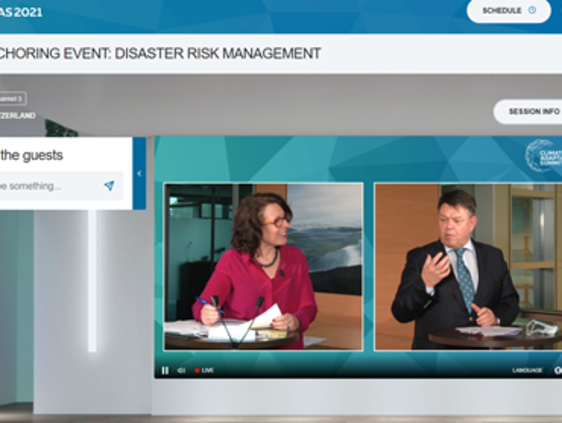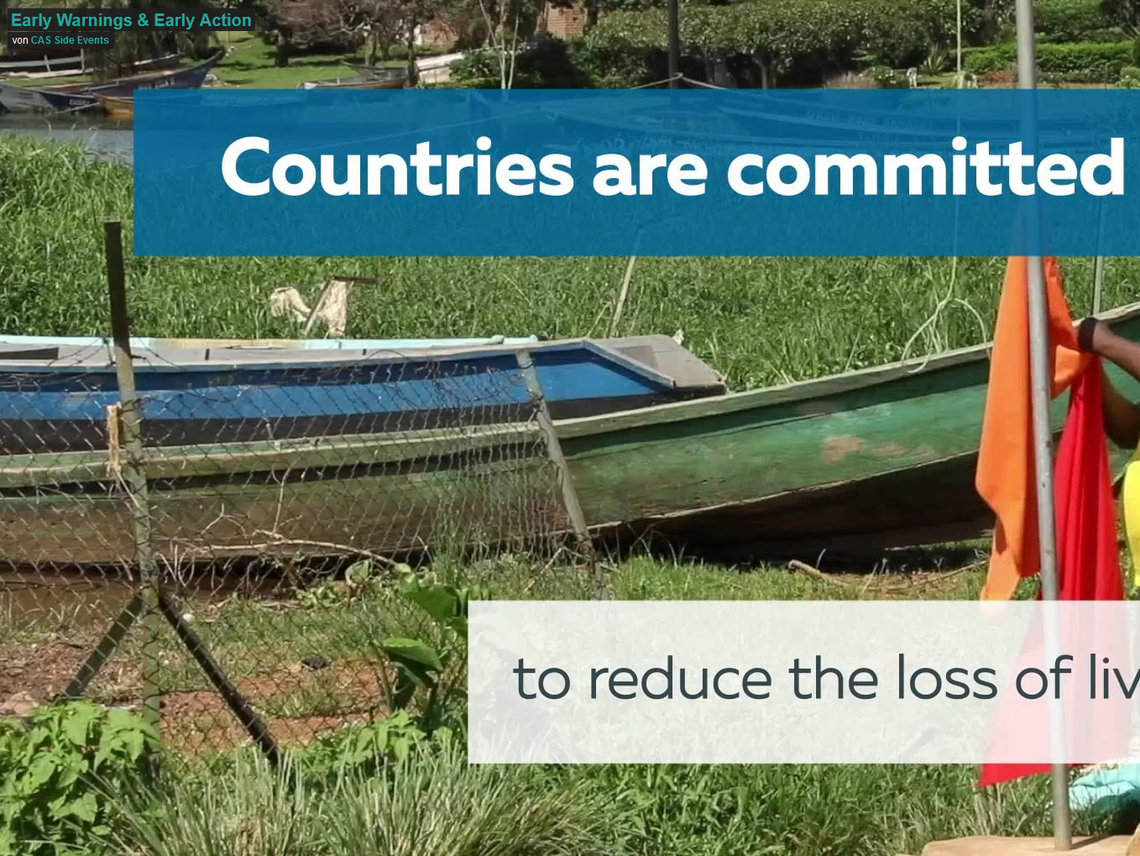Categories
CAS 2021 anchor event on DRR co-hosted by REAP, CREWS, IFRC and WMO
The Climate Adaptation Summit (CAS) anchoring event "Getting ahead of the climate curve: Investing in Early Warning and Early Action" focusing on disaster risk management.
This event was co-hosted by the Climate Risk & Early Warning Systems (CREWS) initiative, Risk-informed Early Action Partnership (REAP), the International Federation of Red Cross and Red Crescent Societies (IFRC), and the World Meteorological Organization (WMO) on January 25th, 2021 from 16:00 to 18:00 CET.
Despite mounting climate impacts, one in three people is not adequately covered by early warning systems that can enable risk-informed early action in advance of climate disasters. This Anchoring Event of the Climate Adaptation Summit addresses the urgent need to invest in people-centred early warning and early action with a focus on vulnerable populations in Africa, low income countries and small island developing states.
This interactive event included presentations from a variety of high-level interventions and featured leaders and decision-makers from countries on the front lines of the climate crisis. One of the discussions focused on the importance of strong communication between Met Offices and the communities to ensure early warning information is understandable and used to take action.

Jagan Chapagain, Secretary General, International Federation of Red Cross and Red Crescent Societies and member of the Global Commission on Adaptation

Moderator Claire Doole and Petteri Taalas, Secretary General, World Meteorological Organization and member of the Global Commission on Adaptation

Jagan Chapagain, Secretary General, International Federation of Red Cross and Red Crescent Societies and member of the Global Commission on Adaptation
Moderator Claire Doole and Petteri Taalas, Secretary General, World Meteorological Organization and member of the Global Commission on Adaptation
Stella Stephen, Monitoring and Evaluation Officer, Centre for Community Initiatives (CCI), Tanzania spoke about the how the Daraja project is bridging the users and producers of warning information. She emphasised that “the scientists need to understand what the community needs ” and vice versa. She highlighted the need for scientists and communities to listen to each other and to ensure there is a strong feedback mechanism between users and producers of warning information to continuously improve the warning communication.
Jagan Chapagain, Secretary General, International Federation of Red Cross and Red Crescent Societies and member of the Global Commission on Adaptation emphasized the need for “investment in both hardware and software” to enable effective early warning and early action – demonstrating the need for building data, forecasting and modelling capabilities in hydromet agencies (“hardware”) and capacity building and preparedness at the community level (“software”). He also spoke about the importance of putting “people at the heart of early warning early action”. In these challenging economic times, the Secretary General, emphasized the importance of continuing to “invest in early warning early action because it is having the best cost benefit ratio - these are the times [during Covid-19] we should not shy away from investing in preparedness.”
The session heard from many other insightful speakers highlighting successful practices in tackling extreme weather and climate hazards, with a focus on anticipatory approaches, early warning and early action.
You can watch the introduction video below.
Play Video

